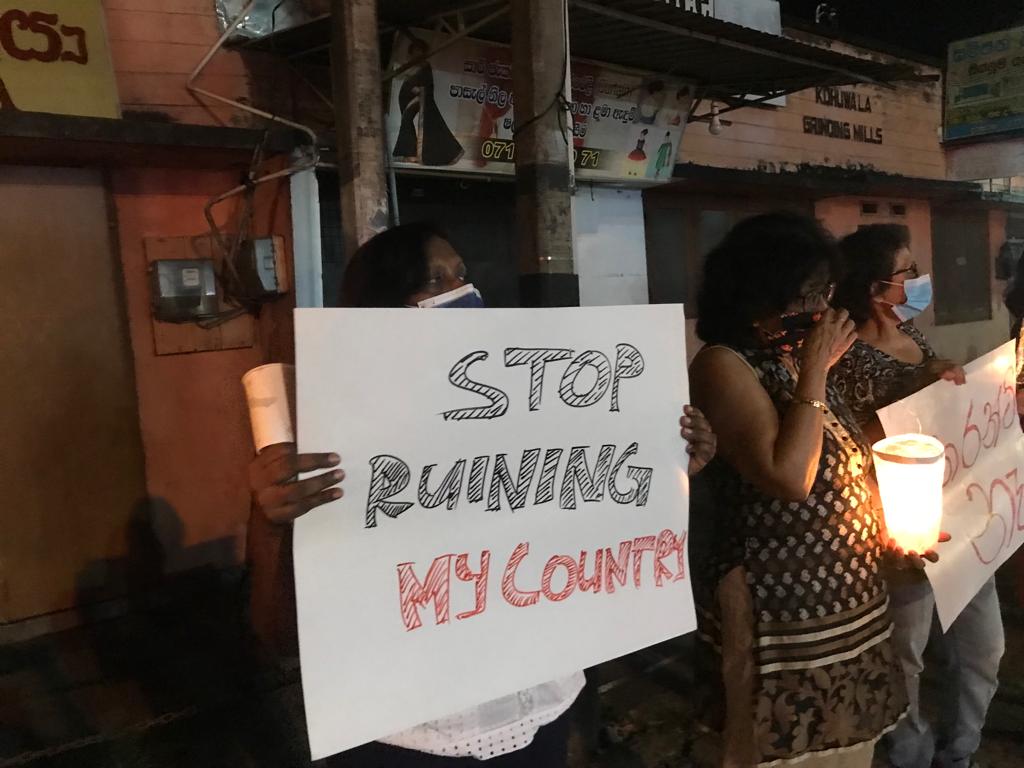Sri Lanka is Asia’s oldest democracy. In fact, it is also Afro-Asia’s oldest democracy. It is over 90 years old. Ranil Wickremesinghe is using the IMF excuse to end Sri Lanka’s democratic character by blocking overdue local authorities’ elections and making no commitment to the inflexibly embedded presidential and parliamentary elections of 2024 and 2025. Instead, he enunciates a doctrine that makes democratic elections entirely dependent on his subjective perception of economic stability.
Thus, Ranil has pitted the IMF program against democracy, thereby identifying the IMF agenda as something that is so fragile that it has a zero-tolerance of competitive democracy. By so doing he also fosters an identification between the IMF agenda and frankly authoritarian rule, turning the clock back to the bad old days of the IMF as an objectively anti-democratic associate of Latin American dictatorship.
Prospects are even worse for the IMF in its current dealings with Sri Lanka. Any stabilisation package which lacks a democratically elected administration as its partner, lacks legitimacy. It is therefore highly probable that the agreement will draw discontent along two, not just one, vector: the socioeconomic and the political. Had the IMF agreement been with a country with an elected President – at least one elected to the legislature in the first place, before he was elected by the legislature—it would have been finetuned by someone who had a mass base; an organic mass connection.
Instead, you have an IMF agreement being used as a shield against the electoral process itself. This ensures that it is not only the standard socioeconomic backlash that the IMF agreement will generate but it will also run into the anti-autocracy/pro-democracy dynamic underway in Sri Lanka.
The combination of a stabilisation package overlaid by an autocratic political agenda will discredit the IMF agreement.
The confluence of a socioeconomic backlash and a political drive for democratic elections will blow the agreement out of the water, further discrediting the IMF.
Anyone who watched the massive popular protests named The Aragalaya (The Struggle) which swept away the local Bolsonaro figure, Gotabaya Rajapaksa would get my point that the Sri Lankans are unlikely to take the burial of elections and imposition of austerity measures lying down.
Of course, Ranil Wickremesinghe has proved capable of meeting protests with methods that have led to the loss of life, including of a war veteran serving as a private security guard at the University of Colombo. On the President’s watch both the faculty of Law and Royal College at which he studied, came under CS gas attack. Mysterious para-military type units, suspected to be contractors, have yet to be identified by the Sri Lankan military.
What this does not mean is that an Aragalaya is ruled out as an option. What it means is that an Aragalaya-2 is going to be costlier in terms of human lives.
When demonstrators carrying signs which name the IMF are clubbed and possibly killed, it isn’t going to make the IMF ‘brand’ look good.
The IMF should not underestimate our President. Sri Lanka had a robust two-party system. Those parties were the UNP and the SLFP. When Ranil Wickremesinghe took over the leadership of the UNP it had 94 seats. Now it doesn’t have a single elected member in the parliament. When the SLFP partnered with Ranil Wickremesinghe in 2015, it had been in office since 1994. During that partnership and due to it, the SLFP now has a pathetically few seats in parliament and is not the main Opposition. The backlash against the partnership with Ranil caused a huge split in the SLFP and the birth of the SLPP headed by the Rajapaksas. The SLPP is now partnered with Ranil having (s)elected him president through the legislature. It is now so weakened that it cannot hold an open-air public meeting.
Ranil Wickremesinghe is pure kryptonite. Now he’s going global, as BFF of the IMF.
So, what can the IMF do, given that it cannot interfere in politics? The states that are the mainstay of the IMF, such as the USA, can ensure that the local government elections are unblocked before the EFF is signed on March 20th, or it can keep the funds blocked until that happens even if it means going into the 2nd quarter of this year. Simply put, it should be ‘no elections, no EFF’.
If that doesn’t happen, the IMF will learn that though it is (barely) beyond the decades of ‘IMF riots’ it has entered on the arm of South Asia’s Mr. Kryptonite, the age of the ‘IMF Revolution’.
Excerpts from “Why Sri Lanka could be the IMF’s most spectacular failure” by Dr.Dayan Jayatilleka published in Daily FT
